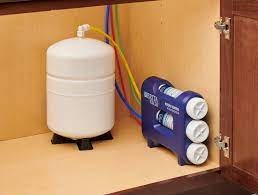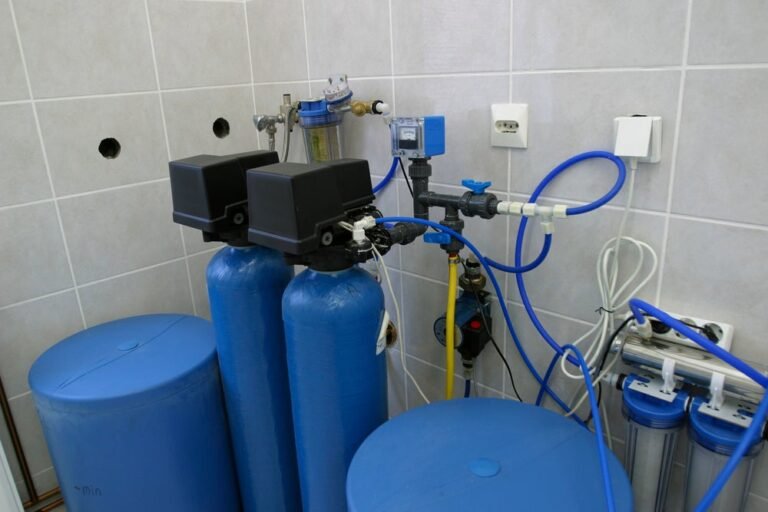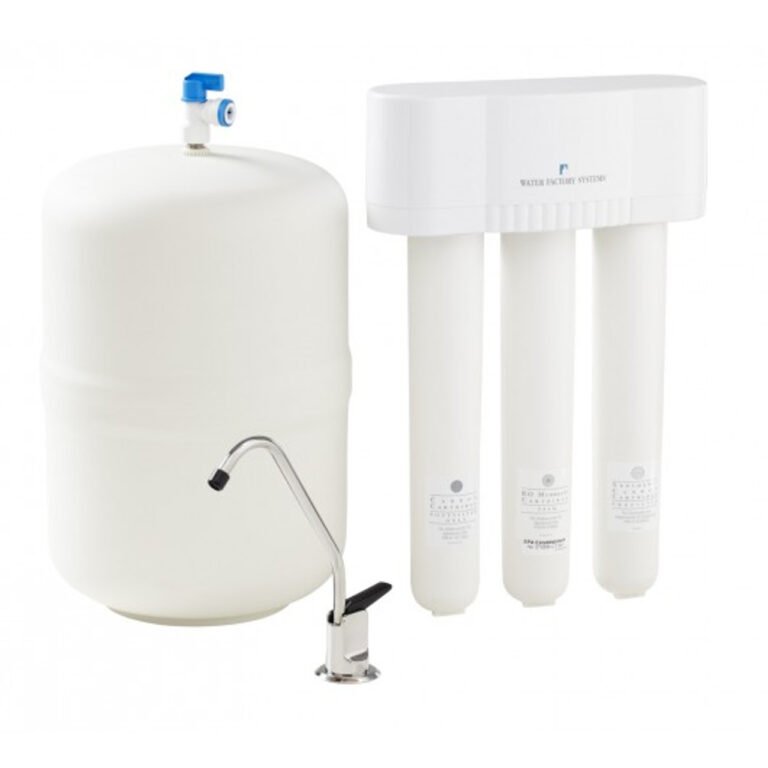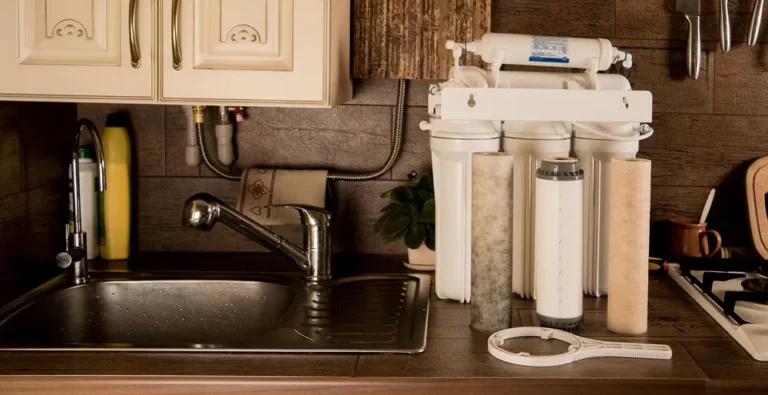Home water filtration systems are becoming more and more popular among homeowners as a means of guaranteeing the purity of their water supply. Safe and clean drinking water is crucial for overall health. Selecting the right kind of home water filtration system for your house might be difficult with so many alternatives on the market. This blog will examine and contrast several home water filtration system types, outlining their benefits and possible drawbacks to assist you in making an informed choice.
Why It’s Important to Filter Water
Prior to getting into the nitty-gritty of each method, it’s important to comprehend why water filtration is required. Municipal water supplies are frequently contaminated with microorganisms, pesticides, chlorine, and lead. Even though these pollutants might only be found in trace amounts, chronic exposure might have negative health impacts. These contaminants can be successfully eliminated by a dependable filtration system, producing clean, safe water for cooking, drinking, and other domestic needs.

Home Water Filtration System Types
Filters with Activated Carbon
One of the most popular and reasonably priced types of water filtration is activated carbon filtration. Activated carbon is used by these filters to collect and eliminate impurities from water. They are efficient in getting rid of sediment, chlorine, and volatile organic compounds (VOCs), which can change the way water tastes and smells.
Benefits
- Reasonably priced and easily accessible.
- Simple to set up and keep up.
- Efficient in enhancing the flavor and odor of water.
Cons:
- Restricted in its ability to eliminate inorganic pollutants such heavy metals and nitrates.
- To keep efficiency, filters must be replaced.
Systems of Reverse Osmosis
A semi-permeable membrane is used in reverse osmosis (RO) systems to filter out a variety of impurities from water. Water is forced across the membrane during this process, trapping contaminants and allowing only clean water to pass through.
Benefits
- Extremely efficient at eliminating a wide range of pollutants, such as bacteria, nitrates, and heavy metals.
- Supplies pure, high-quality water.
- Ideal for homes where certain issues with water quality exist.
Cons:
- May cost more than alternative filtration systems.
- Generates wastewater in the course of filtering.
- Necessitates routine maintenance and expert installation.
Ultraviolet Cleaners (UVC)
UV purifiers purify water by using ultraviolet light to destroy germs, viruses, and other microbes. This approach doesn’t use chemicals and doesn’t change the flavor or aroma of the water.
Benefits
- Quite efficient at eliminating infections.
- It is ecologically beneficial because it contains no chemical additions.
- Preserves the water’s inherent flavor and purity.
Cons:
- Does not get rid of heavy metals, sediments, or chemical pollutants.
- Needs electricity to function.
- Perhaps in conjunction with other filtration techniques for thorough purification.
Filters Made of Ceramic
Porous ceramic materials are used in ceramic filters to remove pollutants. They are appropriate for locations where the water is microbiologically dangerous since they are efficient at eliminating bacteria, sediments, and cysts.
Benefits
- Durable and reusable following cleaning.
- Efficient in getting rid of infections and bacteria.
- Can be applied in combination with additional filtration techniques.
Cons:
- Removing chemical pollutants is limited.
- Filtering rate that is slower than with other systems.
- Needs to be cleaned frequently in order to be effective.
Exchange Filters for Ions
By substituting sodium or potassium ions for hard water minerals like calcium and magnesium, ion exchange filters are made to eliminate them. By softening the water, this procedure is appropriate for homes that have problems with hard water.
Benefits
- Efficient in lowering the hardness of water.
- Prolongs the life and increases the effectiveness of appliances and pipes.
- Can be used in conjunction with additional filtration techniques to provide thorough water purification.
Cons:
Increases the water’s sodium or potassium content, which could not be good for people following low-sodium diets.
- Demands frequent upkeep and resin replacement.
- Not capable of eliminating all kind of impurity.
Water Filters for the Whole House
All of the water sources in the house are filtered thanks to whole house water filters, which are made to treat water at the point of intake. To provide thorough water treatment, these systems often incorporate a number of filtering techniques, including UV purifiers, carbon filters, and sediment filters.
Benefits
- Supplies filtered water for all domestic needs, such as laundry and bathing.
- Lowers the amount of chlorine and other pollutants that can harm skin and hair.
- Can be tailored to solve certain issues with water quality.
Cons:
- Greater installation costs and upfront costs.
- Calls for routine upkeep and filter change.
- It might require expert installation.
Sink-Under Filters
Installed beneath the kitchen sink, under-sink filters are linked to the water supply line. They are small and can have different filtration techniques including reverse osmosis, carbon, or ceramic filters.
Benefits
- Compact form that conveniently stores beneath the sink.
- Offers a specialized supply of filtered water for cooking and drinking.
- Simple to set up and keep up.
Cons:
- Restricted to one use only.
- Requires frequent replacement of the filter.
- Possibly not as extensive as whole-house systems.
Surface-mounted filters
Countertop filters are small, simple-to-install devices that attach to the faucet and sit on the kitchen counter. They frequently employ ceramic or carbon filters to get rid of impurities.
Benefits
- Easy installation that doesn’t require expert assistance.
- It is transportable and movable between locations.
- Efficient in raising the water’s quality and flavor.
Cons:
- Occupies counter space.
- Restricted to using a single faucet to filter water.
- Requires frequent replacement of the filter.

Selecting an Appropriate Water Filtration System
The quality of your water supply, your spending limit, and your particular water quality concerns will all play a role in the system you choose for your house. To assist you in making an informed choice, take into account the following:
Water Quality: To find out what pollutants are in your water, test it. This will assist you in selecting a filter system that successfully solves the particular problems with the quality of your water.
Budget: Take into account the filtration system’s purchase price, installation costs, and continuing maintenance costs. Even though some systems can cost more up front, they might save money over time on maintenance and filter changes.
Installation and upkeep: Choose between a system that needs to be professionally installed and one that you can install on your own. Take into account the upkeep needs as well as the accessibility of replacement filters.
Water Needs and Usage: Evaluate the water requirements and usage in your home. For instance, a whole house filtration system might be your best option if you want filtered water throughout your home. For drinking and cooking purposes solely, an under-sink or countertop filter may be adequate.
Environmental Impact: Take into account how the filtration system will affect the environment in terms of water waste, energy use, and the use of disposable filters. Select a system that is consistent with your environmental principles.




